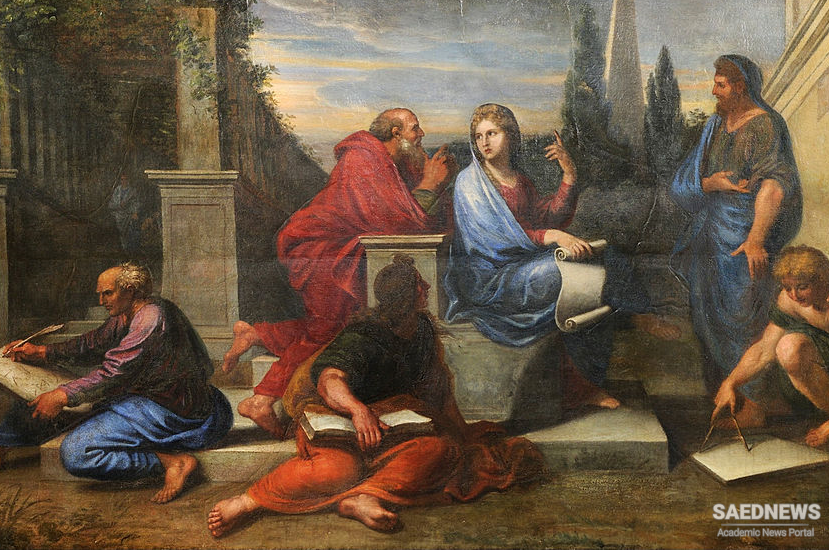Indeed, though time has spared us a few ancient histories of empires, republics, and individuals, yet no models of a History, either of Music, or of any other art or science, are come down to us, out of the many that antiquity produced. Plutarch's Dialogue on Music approaches the nearest to history; but, though it abounds with particulars relative to the subject, it is so short and defective, that it rather excites than gratifies curiosity. Some of the writings of Aristotle and Aristoxenus that are lost, though they were not express histories of music, would, nevertheless, had they been preserved, have satisfied our doubts concerning several parts of ancient music, which are now left to conjecture. " Aristotle, the disciple of Plato," says Plutarch, " regarded melody as something noble, great, and divine." Now, as this passage is not to be found in the remaining works of Aristotle, it is imagined that Plutarch took it either from his Treatise on Music , or the second book of his Poetics, where he treated of the Flute and Cithara, both which works are lost. And yet Kircher, [1602-80] in his Musurgia (&), speaking of the ancient writers on Music, whose works he had consulted among the manuscripts in the Jesuit's College Library at Rome, names Aristotle; but I sought in vain for the Treatise which he had written expressly on Music, nor could I find there any work by that philosopher relative to the subject, except his Acoustics. lmost all the ancient philosophers, especially the Pythagoreans, Platonists, and Peripatetics, wrote treatises on Music, which are now lost. Meursius, in his notes on Aristoxenus, enumerates, among others, the following ancient writers on music, of whom we have nothing left but the name : Agenor, of Mytilene, mentioned by Aristoxenus, from whom sprung a sect of musicians called Agenorians ; as from Eratocles, the Eratocleans ; from Epigonus, the Epigonians, and from Damon, who taught Socrates music, the Damonians.


 Early Roots of Western Musical Influence in Persia
Early Roots of Western Musical Influence in Persia














































